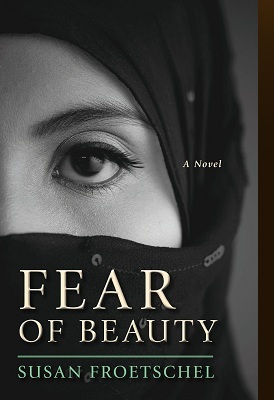 An Afghan woman defies her husband and societal pressures to investigate the death of her son.
An Afghan woman defies her husband and societal pressures to investigate the death of her son.
- Nominated for 2014 Simon & Schuster Mary Higgins Clark Award, Mystery Writers of America
- 2014 Gold Star, Mystery/Suspense, Military Writers Society of America
- 2014 Literature Award, Middle East Outreach Council
- A Best Novel for Adult Readers, National Federation of Press Women
"...an exceptionally well-written tale of love, loss, trust, and greed with appeal that reaches far beyond mystery fans." - Publishers Weekly
The battered body of an Afghan boy is found at the base of a cliff outside a remote village in Afghanistan. Did he fall as most of the villagers think? Or is this the work of American soldiers, as others want to believe, with the US Army at a training outpost nearby.Sofi, the boy's illiterate young mother, is desperate to learn the truth about her son's death. Her world is turned upside down, first by the US troops and then by extremists who move in and offer to roust the "infidels" from the region.
Defying all odds, Sofi secretly learns to read with the help of Mita Samuelson, an American aid worker. The Afghan woman develops her own interpretation of how to live the good life while discovering the identity of her son's murderer. With fierce and independent courage, she also learns the extremists' real purpose in her village.
As they search for answers, the characters come to the same realization: In each of their separate cultures, the urge to preserve a way of life can lead to a fundamentalism that destroys a society's basic values.
Discussion Questions
- The Afghan family has many secrets. When do individuals have a right to keep secrets? Are these secrets essential for survival? Which secrets are destructive for individuals and which give power?
- Multiple perspectives drive Fear of Beauty’s plot, including that of an illiterate Afghan woman, her husband and an US Army Ranger. At what point do the two perspectives converge with the characters sharing a common interest?
- What are the motivations of the protagonist, a mother of five, who is desperate to learn to read after the death of her son? Does this motivation expand over time?
- Analyze the contrasting responses to illiteracy in Afghan and American societies – who feels shame and why?
- What are the sources of tension in this novel? Are sources external to one’s community more threatening than internal sources?
- Sofi masks her intelligence so that her farming ideas are not rejected out of hand. Do Western girls and women confront similar pressures?
- How do individuals resist controlling family members, religious groups or communities?
- In what ways do husbands and sons hide the respect they hold for the women in their lives? Does such reticence eventually erode or support respect?
- Sofi, in learning to read, discovers new interpretations of verses from the Koran. For example, why is she suddenly empowered by the phrase “the good women are therefore obedient, guarding the unseen as Allah has guarded”?
- Does reading contribute to Sofi’s dissatisfaction or satisfaction with her village? Is she correct with her observation that comparisons require judgment?
- Can you imagine Sofi wanting to learn to read if not for the death of her son?
- How does this book provide context to reports about war and conflicts throughout the Middle East and Central Asia?
- The author is editor of YaleGlobal, a publication that explores globalization as the connections of our world. How did her work as a journalist influence the novel?
- Does prevention of extremism and radicalization in society start with the family?
- What is the most original feature of this novel?
Read an excerpt
978-1-61614-702-0
For interviews, contact Susan(at)Froetschel.com